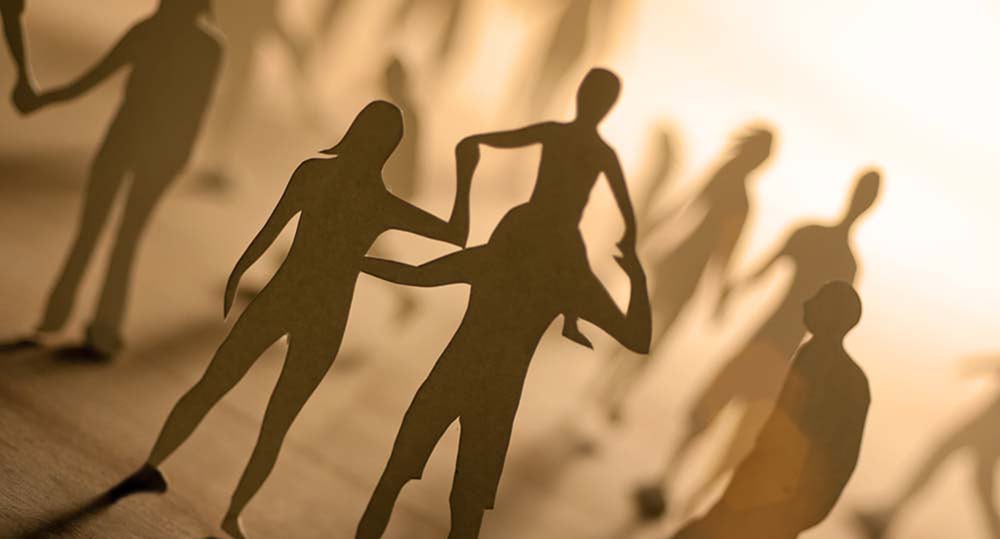DVAM — A conversation on civility
Written by Julia Spann
In recognition of Domestic Violence Awareness Month, let’s have a conversation about civility.
Be civil, stop abuse
Civility is treating well and being treated well. Civil behavior should be the rule rather than the exception.
The most extreme form of incivility is family violence. Eradicating abuse is not easy or straightforward, but it is possible if we embrace a model of civic responsibility in which all of us are responsible for public behavior.
This includes family behavior, so let’s talk about family. We have two opposing social constructs: a public contract and a private concern. Marriage is a legal contract, reinforced by a very public ceremony. Yet the relationship between two partners, or between parents and children, is considered private. One of the most common beliefs is what happens in the family stays in the family. Families have a right to privacy, but that should not be at the risk of harm and abuse.
Which takes us to incivility. Incivility is the lack of respect. It’s a continuum of behaviors, with crudeness and rudeness on one end and abuse and violence at the other. Incivility, at its core, is hedonistic, selfish, and concerned first and foremost with self. The same goes for people who are abusive. Family violence is about one person’s need to maintain their power over another. An abusive person does this with threats, intimidation, control, manipulation, and violence.
Domestic violence in the world
Being a woman is the number one risk factor for being a victim of family violence. In their lifetimes, 1 in 4 women will be victims of intimate partner violence. So, the next time you go to the grocery store or as you sit in church, count off one, two, three, abused. One, two, three, abused.
I believe that even among people who are civil and would never be abusive toward someone in their family, those same good folks will turn their backs on instances of family violence around them. We turn our backs not because we are bad people, but because we are taught that family matters are private and it is not our place to comment. Interfering is really uncomfortable.
What can you do?
So here’s a different model. If you witness a parent slap their child in a grocery store, you could calmly say, “You seem really stressed, can I help you so you don’t hurt your child?” You’ve put them on notice that what they are doing is not OK, but you are also being kind. What if at the dinner table you pulled aside your relative who is putting down his wife and said, “Take it down a notch, it isn’t OK to talk to your wife that way!”
Civility grows when we accept our shared responsibility for one another, especially in private relationships. Imagine the difference that could be made if we were to respectfully break the silence and secrecy that cocoons abuse.
Secrecy is abuse’s greatest ally
Abusers use various tactics to ensure their victims remain powerless. Victims are told, “If you tell, I’ll lose my job” or, “I’ll tell everybody what a horrible wife and mother you are.” Or, “I will come back and kill you.”
Of course a victim chooses not to tell – it is just too dangerous. As a result, the secrets and the abuse live on. Our inaction is complicity.
I remember a domestic violence survivor telling me she saw a doctor for years. She didn’t have knife wounds or choke marks, but she was always sick from the stress her abuser put her through and she routinely had bruises. The doctor never asked about her safety. Finally, she said to him, “I’ve been coming to you for years and my husband has been abusing me all along. You never asked if I was safe.”
His response: “You never told me.”
What now?
Years ago the location of SafePlace was secret. Then, we went public. It says to victims, “you do not have to be ashamed to come here.” It says to abusers, “no more secrets.” It says the community, “safety is not solely the victim’s responsibility.”
This Domestic Violence Awareness Month, let’s go one step further. The SAFE Alliance should not be alone in keeping victims safe. It is all of our responsibilities. You and me. This is civility.
This post was originally written as a sermon on civility delivered in 2010. Content has been adapted for web.